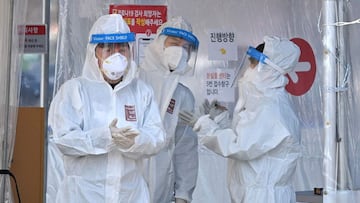Will the covid pandemic end in 2022?
The World Health Organization has asked wealthy countries to donate to a fund to put an end to the global coronavirus pandemic this year.

Throughout the global coronavirus pandemic, the World Health Organization has repeated the same mantra, actively and passively: the equitable distribution of vaccines is absolutely vital to bringing the covid-19 crisis to an end. The director general of the WHO, Tedros Adhanom Ghebreyesus, has unveiled a campaign to achieve precisely that goal: The Access to COVID-19 Tools (ACT-A) Accelerator.
“Where people have access to these tools, the virus can be controlled. Where they are not available, the virus will continue spreading, evolving and killing,” Ghebreyesus said. As such, the WHO has called on the world’s wealthier nations to donate towards a $23.4 billion international investment fund to bring an end to the pandemic on a global scale before the end of the year. With a quick cash injection into the ACT-A, the WHO believes that the coronavirus pandemic can be ended as a global health emergency.
Among the objectives of the ACT-A plan, which aims to develop, produce and distribute the necessary tools to end the pandemic, are vaccines testing, treatments and PPE equipment. Speaking at the same meeting as Ghebreyesus, United Nations Secretary General António Guterres said: “We can bring an end to the pandemic in 2022, we are on the right path to do so. But we can only do it together.”
"Depending on where you live, it might feel like the #COVID19 pandemic is almost over – or it might feel like it’s at its worst. But wherever you live, COVID isn’t finished with us"-@DrTedros #ACTogether
— World Health Organization (WHO) (@WHO) February 9, 2022
Ghebreyesus: "COVID isn't finished with us"
“Depending on where you live, it might feel like the #COVID19 pandemic is almost over – or it might feel like it’s at its worst. But wherever you live, COVID isn’t finished with us,” Ghebreyesus wrote on Twitter.
The WHO and UN want to boost the COVAX facility, set up to ensure vaccines reach the lesser developed regions of the world and to try and prevent richer nations from stockpiling stores. Nearly one billion doses of the various available vaccines have been delivered to lower-income countries around the world through COVAX. “Diseases know no borders and, as we know thanks to Omicron, any sense of security can change in an instant. We know the virus will continue to evolve. But we are not defenceless,” added Ghebreyesus.
Related stories
The WHO’s Consolidated Financing Framework for ACT-A Agency and In-Country Needs stated the $23.4 billion fund would be required to operate the budget for the plan from October 2021 to September 2022. However, so far only $8 billion has been donated to the fund, leading the WHO to appeal to the richest nations to “close this financial gap immediately” with an injection of $16 billion.
“To end the pandemic, governments, manufacturers and donors must fully fund the ACT-Accelerator to address inequities in access to COVID-19 vaccines, tests and treatments. In focusing its energies on addressing the great equity gap for these tools, the ACT-Accelerator is bolstering its role as an ally for countries side-lined by market forces in securing life-saving interventions. Fully funding the ACT-Accelerator is a global health security imperative for us all – the time to act is now,” the WHO chief told the assembly.

